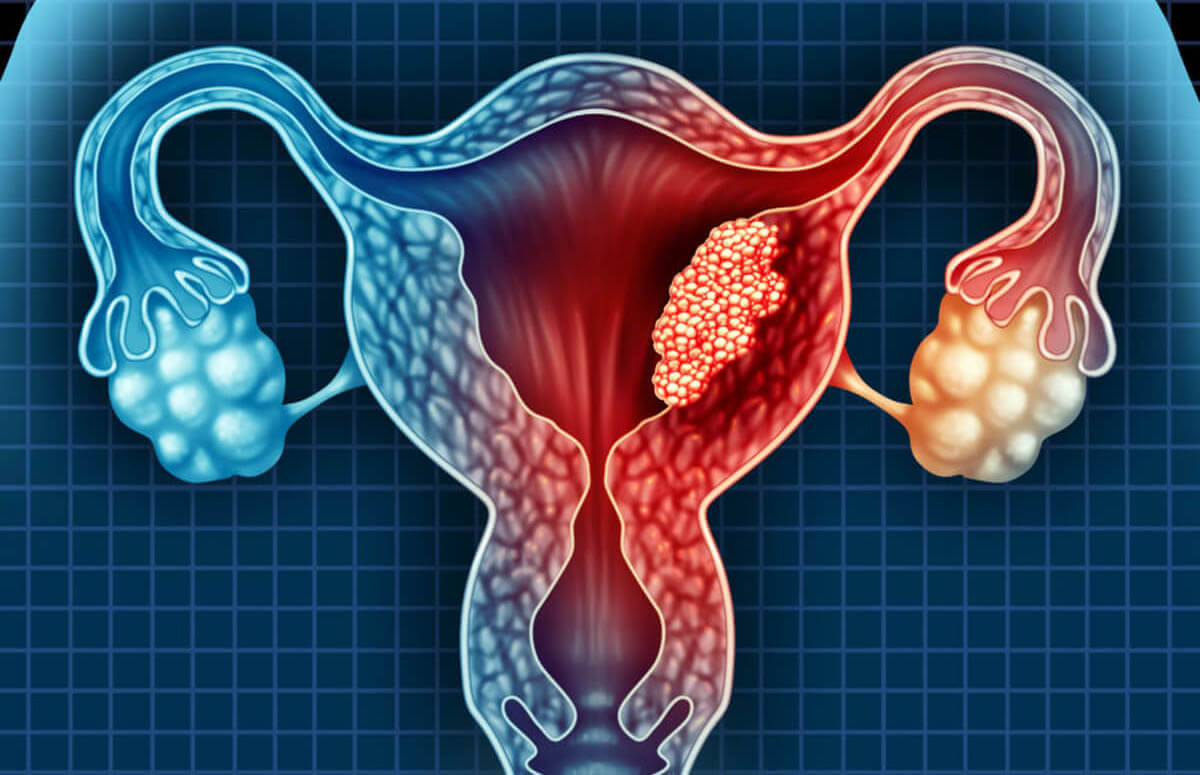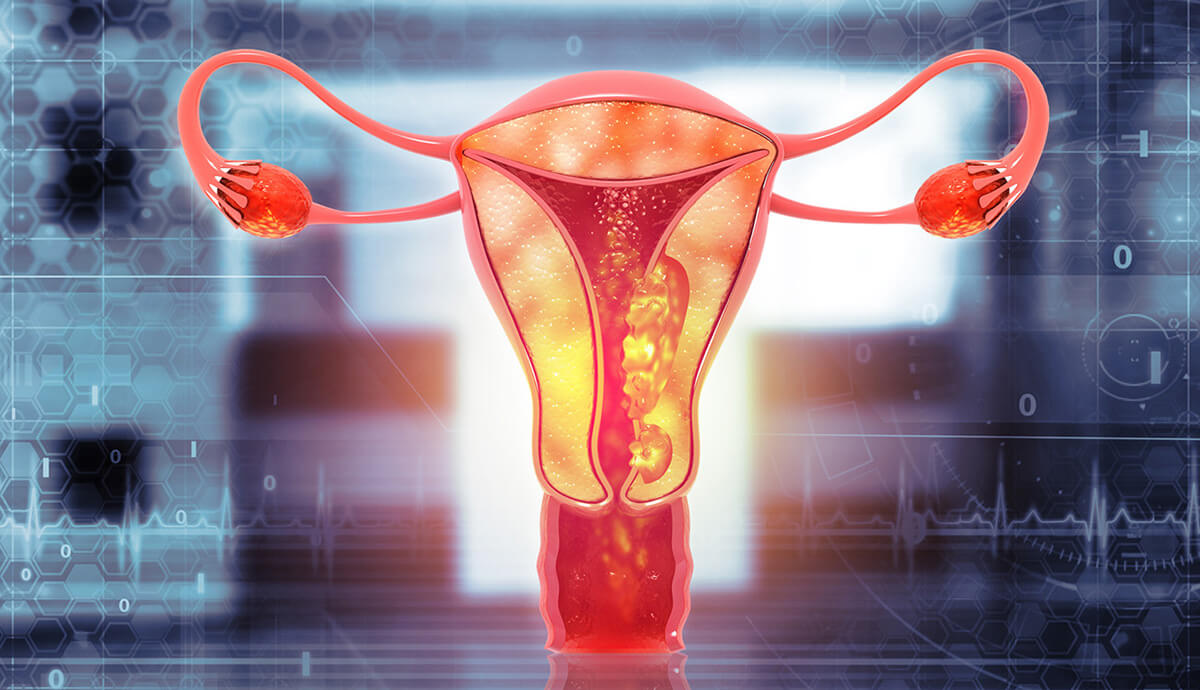Calls for Ukraine
Calls for Europe
Calls for USA

Uterine cancer is a malignant disease in which a tumor develops from cells of the uterine body. About 150 thousand new cases of this pathology are diagnosed annually in the world. According to statistics, the disease is more often detected after 55 years of age, although it can also occur at a younger age. Doctors distinguish several types of malignant tumors of the uterus. Most often, the neoplasm arises from the mucous layer of the uterus (endometrial cancer), and adenocarcinoma of the uterus, which is formed from glandular cells, is predominantly diagnosed. However, other malignant tumors of the uterus, such as uterine sarcomas, can also occur.
Modern medicine offers various treatment options for this cancer. The earlier this pathology is diagnosed, the easier it will be to find effective treatment and the better the prognosis. But even in the later stages it is possible to fight this disease. MedTour cooperates with leading medical centers where doctors use a personalized approach, including individual selection of therapy, the use of the latest techniques, and the prescription of innovative drugs. This allows specialists to find effective treatment even in the most difficult cases.
At the moment, the exact causes of a malignant tumor of the uterus are not clear. Most often, neoplasms of this type are hormone-dependent and the likelihood of their occurrence increases with high concentrations of estrogen and low levels of progesterone. However, cancer can also occur when hormonal levels are normal.
Factors that may contribute to the development of uterine cancer are the following:

The first signs of uterine cancer include the appearance of atypical bloody discharge and leucorrhoea. Then other typical symptoms of the disease appear.
Among the most common symptoms are:
Symptoms may vary depending on the type of tumor and the stage of the disease.
Depending on the reasons why uterine cancer developed, oncologists divide it into two groups:
Depending on how differentiated the tumor tissue is, doctors distinguish between well-differentiated, moderately differentiated and poorly differentiated tumors. There are also histological types such as adenocarcinoma, sarcoma, squamous cell carcinoma, leiomyosarcoma, and glandular squamous cell carcinoma.
Well-differentiated adenocarcinomas are diagnosed quite often. They are formed from the glandular epithelium that covers the uterus from the inside. Highly differentiated cancer cells are partially similar to healthy ones. Tumors of this type are less aggressive and respond fairly well to treatment. With properly selected therapy, there is a high probability that the woman will be able to fully restore her health.
Carcinosarcoma of the uterine body is a malignant neoplasm that simultaneously includes cells of the glandular epithelium and connective tissue. This is a fairly rare and aggressive tumor that grows quickly and metastasizes early. The prognosis for uterine carcinosarcoma is not very good. This is primarily due to the fact that a neoplasm is most often discovered when it has already spread beyond the organ and metastasized. However, a correctly chosen treatment strategy, the use of an integrated approach and the use of the latest drugs can significantly improve treatment prospects and reduce the risk of relapse.
There are several stages of uterine cancer, each with its own characteristics. Determining the stage of the disease, as well as the type of tumor, is an important diagnostic criterion that allows doctors to select the most accurate treatment.
Stages of cancer of the uterine body:
Diagnostics includes a complex of instrumental and laboratory methods. The examination is carried out in order to accurately determine the location of the malignant tumor, the degree of involvement of different tissues, the stage of the disease, and the type of tumor cells. This makes it possible to obtain information that will allow oncologists to select personalized treatment and thereby increase the effectiveness of therapy.

Ultrasound is the primary diagnostic method that allows doctors to detect the presence of a tumor. For greater information, both transabdominal and transvaginal ultrasound are used today. However, ultrasound diagnostics cannot accurately determine that a tumor is malignant. Therefore, an additional examination is prescribed, which is usually hysteroscopy with biopsy. During this procedure, a sample of tumor tissue is taken, which is then examined in a laboratory.
A CT scan with contrast or an MRI of the pelvis may also be performed to determine the stage of the disease and detect possible metastases.

Laboratory tests are of particular importance in the diagnosis of malignant diseases. Typically, laboratory tests include the determination of various biochemical blood parameters, which help determine the general condition of the body, and tests for tumor markers.
After the biopsy, a histological diagnosis of the tissue sample is carried out, and special cytological studies are performed. This allows doctors to determine the type of cancer.
Recently, it has also become possible to conduct molecular genetic testing. This innovative technique makes it possible to identify mutations in genes associated with cancer pathology, both congenital and acquired. The data obtained help to determine tumor parameters as accurately as possible and select a drug that will have a targeted effect, i.e. it will specifically affect the cells of a given tumor. Molecular genetic analysis makes it possible to choose cancer treatment that will ensure high effectiveness of therapy.
MedTour will help you find a laboratory where you can undergo genetic testing and get as much important information about the tumor as possible, which will allow oncologists to choose the most effective treatment.
In order for therapy to be effective, the treatment regimen is selected individually and may include a set of methods. Oncologists necessarily take into account the size and location of the tumor, its exact characteristics, including immunohistochemistry, the patient’s personal health characteristics, and concomitant diseases.

Typically, the following methods are used to treat malignant neoplasms in gynecology:
Treatment tactics and choice of therapy methods largely depend on the stage of the tumor.
At the first stage, surgery is almost always prescribed. Usually the body of the uterus is removed, as well as the cervix and fallopian tubes. In modern clinics, such operations are mainly performed using laparoscopic techniques, when access to the surgical site is carried out through several centimeter incisions.
In some cases, surgery may be sufficient to treat stage 1 cancer, but more often other treatment methods are used in addition. This could be chemotherapy, hormone therapy, or radiation.
The treatment tactics for the second stage are very similar to the treatment of stage 1 uterine cancer. However, in this case, doctors almost always prescribe additional radiation or chemotherapy after surgery. In addition, surgical intervention is often carried out on a larger scale – the uterus and ovaries are removed for stage 2 cancer.
The main method also remains surgery. However, at the third stage, in addition to removing the uterus and ovaries, nearby lymph nodes are also usually removed, as the risk of metastases increases. At the third stage, surgery is always combined with other treatment methods.

In later stages of the disease, surgery is not always recommended. The basis of therapy at stage 4 is chemotherapy, treatment with hormonal agents, targeted drugs, and radiation. This is due to the appearance of metastases, which are often not possible to remove surgically. But even at stage 4 of uterine carcinoma, today it is possible to choose a treatment that will be quite effective.
Radiation is often used in combination with surgery. Radiation therapy is usually given a few weeks after surgery to kill any cancer cells that may remain after surgery. This approach reduces the risk of relapse. However, the need for radiation in each specific case must be determined by a doctor.
Sarcoma is considered a more aggressive tumor compared to carcinoma and is less treatable. However, with timely consultation with a doctor and properly selected therapy, a complete cure is possible.

Each tumor is unique. Accordingly, treatment should be selected individually, taking into account the parameters and characteristics of the tumor. A personalized approach makes it possible to use the most effective methods for each specific case.
Prices for surgery to remove uterine cancer depend on a number of parameters. This is both the country in which you will undergo treatment and the level of the clinic you choose. In addition, pricing is influenced by the volume of the operation, the use of additional treatment methods, the qualifications of the attending physician and much more.
To get more information about the cost of treatment of malignant gynecological tumors in various clinics, contact us.
The treatment regimen for relapse depends on the type of cancer, extent of spread and location. If the tumor is single, surgical treatment may be prescribed. For multiple metastases in various organs, radiotherapy, targeted therapy and other methods are used.
The earlier a relapse is detected, the easier it will be to fight it, so after cancer treatment it is imperative to undergo regular examinations.
Uterine cancer can be treated quite successfully in the early stages. At later stages, survival rate drops noticeably. However, the rate of development of pathology and survival prospects may have significant individual differences. If treatment is started in a timely manner and competent tactics are chosen to combat oncology, a woman has every chance of being fully cured and living a full life.
Prognosis for successful cancer treatment depends on various factors: the stage at which therapy was started, how well it was selected, and other health characteristics. If we take generalized information, five-year survival forecasts for different stages look like this:
However, do not forget that these are general statistics. In each individual case, the prognosis may differ significantly. And even in the most advanced stages of the disease, there are opportunities to successfully combat the disease using the most advanced methods of treating uterine cancer.
You can undergo diagnosis and treatment of all types of malignant tumors of the uterus in the best specialized medical centers in different countries of the world. The MedTour platform cooperates with leading medical institutions in Ukraine, Turkey, Germany, Israel, the Czech Republic, Italy, Spain, South Korea, and India. For example, world-famous clinics treating gynecological oncological diseases include:
We will help you choose the medical center that best suits your needs and requests. To find out more about clinics, prices, and the range of services they provide, contact us. The MedTour coordinator will provide you with the necessary information free of charge and answer all your questions.
The choice of doctor plays an important role in the success of treatment. A good specialist must have the necessary qualifications, work experience and special skills, be able to communicate with the patient, support and motivate patients during the treatment process. MedTour will help you choose a doctor who meets all these criteria.
You can see a list of specialists in the treatment of uterine cancer on our website. To get additional information on doctors and make the best choice, contact the MedTour coordinating doctor.
Please rate the work of MedTour
